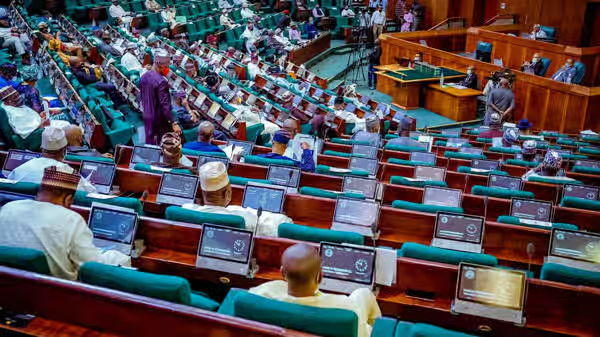As air travel rebounds and grows across the continent, December 2025, a peak month for holiday travel, paints a compelling picture of Africa’s most active aviation hubs. From bustling gateway cities to transformative tourism corridors, these airports show how Africa is reconnecting, regionally and globally, through air transport.
Below, we highlight the top five busiest African airports this December, based on the most recent passenger traffic and scheduling data available.
1. Cairo International Airport (Egypt) — Africa’s No. 1 Aviation Hub

At the top of the list is Cairo International Airport, firmly holding its position as Africa’s busiest airport in 2025.
- Why it’s #1: Strategic connections between Africa, Europe, the Middle East, and Asia make Cairo a focal point for both international and domestic travel.
- Passenger volume: Around 29 million passengers in 2025, the highest on the continent.
- Drivers of growth: Expansion of EgyptAir’s network, recovery of international tourism, and Cairo’s role as a major transit hub contributed to its lead this year.
Cairo’s impressive performance underscores Egypt’s investment in tourism and air infrastructure—and its strategic geographic advantage that keeps global and continental air traffic flowing through its terminals.
2. O.R. Tambo International Airport (South Africa) — Southern Africa’s Kingpin

South Africa’s busiest airport, O.R. Tambo International in Johannesburg, secures the second spot.
- Traffic figures: Roughly 18 million passengers in 2025.
- Regional importance: A vital hub connecting Southern Africa to Europe, the Americas, and Asia.
- Economic role: The airport supports business travel, tourism to South Africa’s top destinations, and continues to rebound from pandemic-era slowdowns.
O.R. Tambo remains essential for both international connections and domestic flights, contributing significantly to South Africa’s aviation industry.
3. Addis Ababa Bole International Airport (Ethiopia) — East African Connector
Third on the continent is Addis Ababa Bole International Airport, Ethiopia’s flagship airport and the home base of Ethiopian Airlines.
- Passenger traffic: Around 11.8 million passengers in 2025.
- Strategic role: Positioned at the heart of Africa, it serves as a key transfer point for passengers traveling between Africa and global destinations.
- Growth factor: Ethiopian Airlines’ expanding network boosts traffic as the airline increases destinations and flight frequencies.
Addis Ababa’s continuing rise reflects the city’s aviation-led growth strategy and regional connectivity ambitions.
4. Mohammed V International Airport (Morocco) — North Africa’s Gateway
Morocco’s busiest airport, Mohammed V International Airport in Casablanca, ranks fourth.
- 2025 traffic: Approximately 10.45 million passengers.
- Connectivity boost: Strong air links to Europe, Africa, and the Americas underlined by Royal Air Maroc’s expanding network.
- Tourism and transit: The airport serves as a crucial transit and tourism gateway, supported by Morocco’s strategic location and robust tourism numbers.
Continued infrastructure improvements and airline partnerships are likely to keep Mohammed V busy through peak seasons.
5. Cape Town International Airport (South Africa) — Tourists’ Favorite
Rounding out the top five is Cape Town International Airport, South Africa’s gateway to one of the continent’s most iconic destinations.
- Passenger volume: Roughly 10.37 million in 2025.
- Tourism strength: Cape Town’s global appeal as a leisure destination drives steady international and domestic air traffic.
- Seasonal boosts: December typically sees heightened tourist flows, lifting Cape Town up the ranks.
With its blend of business and leisure travelers, Cape Town continues to solidify its position among Africa’s busier airports.
What the Rankings Reveal
These top five airports reflect broader trends shaping African aviation in 2025:
- Post-pandemic rebound: Airports across the continent are seeing renewed growth in passenger volumes.
- Strategic hubs matter: Geographic positioning and airline networks play key roles in busyness.
- Tourism’s influence: Cities like Cairo and Cape Town benefit enormously from holiday travel peaks.
The ranking also highlights growing competition within the continent’s aviation landscape, with West African airports like Lagos’ Murtala Muhammed International Airport increasing traffic—entering broader lists of busiest hubs thanks to strong regional demand this December.















